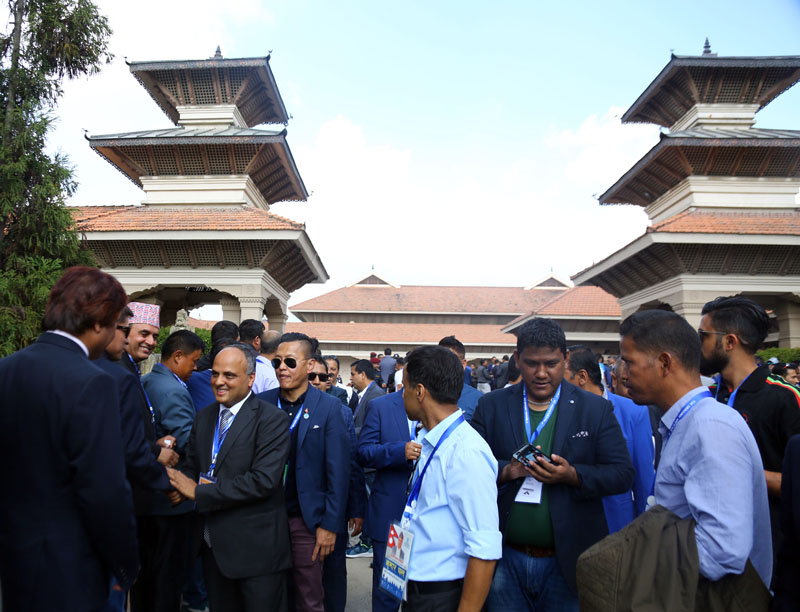NRNs: Partners in development or politics?
Kathmandu, October 17
More than 2,500 individuals from the Nepali diaspora in various countries are gathered here to participate in the three-day Global Conference of Non-Resident Nepali Association (NRNA) that began from Tuesday. As the NRNA is holding an election for the organisation’s leadership through this convention, the event has had tremendous participation of Nepalis from across the world.
As the voting for the new executive committee of NRNA is underway at the moment and the results are expected to be out by midnight today or Friday morning, the high level of ‘political’ engagement or interference in the NRNA convention and the entire election process of the new leadership this year has brought to the fore the questions related to the role of NRNA movement and subsequently the NRNs.
Conflict and polarisation
NRNs, over the years, have been acknowledged as an important development partner of the country. However, NRNA, which is the umbrella organisation of millions of Nepali people residing abroad, is increasingly becoming a cause of conflict and polarisation among Nepali communities based overseas, thereby generating concerns from everyone, including NRNs themselves.
This has resulted in high criticism of NRNs and NRNA on social media in the last few days. Moreover, the decision of NRNA’s founding president and patron Upendra Mahato to boycott the convention and the election citing the rise in political interference reflects how NRNA is gradually departing from its original vision of working for the development and betterment of the country.
“The prime objective of NRNA is to bring in knowledge and expertise of Nepali diaspora in Nepal and utilise them for the country’s economic and social development. However, with each passing year, the organisation is somehow transforming into a political playground,” said Mahato, adding that NRNA should be completely free of politics or any political agenda.
Compared to past years, politics has largely gripped the NRNA election this year, which is why Mahato said that he had refrained from participating in the NRNA convention and the election process.
Tarnished image
The spat between NRNs and NRNA members and the unhealthy fight for leadership positions was clearly visible in the NRNA Global Conference during the election campaign and voting process.
Candidates for different top posts at NRNA were clearly guided by politics — with some aligned with the Nepal Communist Party (NCP) and others inclined towards the Nepali Congress (NC).
While some participants at the event said that the ruling party NCP was trying to rig the election in their favour, the mothers said that some candidates in the election were backed by high-level NC leaders.
Bimal Adhikari, a UK-based NRN, said that politics at this level in the NRNA was unfortunate. “NRNs who claim to be cadres of any political party cannot vie or claim leadership positions in NRNA. No matter who wins the elections this year, at the end of the day it is the association that will lose out in the long run. NRNA will certainly lose its existence with such politics,” said Adhikari.
In recent years, the public has been losing its faith in the NRNA movement not only due to increasing politics in the organisation but also due to the unruly behaviour displayed by some NRNs in different government offices, including the airport. The government had recently warned NRNs for their indecent behaviour at the Immigration Office at Tribhuvan International Airport. And in an even more shameful display of behaviour, NRNs have also been criticised for dirtying the different hotels in Kathmandu that they are staying in.
The current leadership of NRNA, Bhaban Bhatta, has also been criticised for not being able to maintain the glory of NRNA and holding the elections in a fair and healthy manner.
Dinesh Bhattarai, who has been appointed as ambassador to various countries at different times, believes that NRNs and NRNA should work for the national interest over their personal or organisational interest. “NRNA was established in a bid to support Nepal’s development and growth. The NRNA and its members should work keeping this objective at the centre of all that they do,” he stated.






